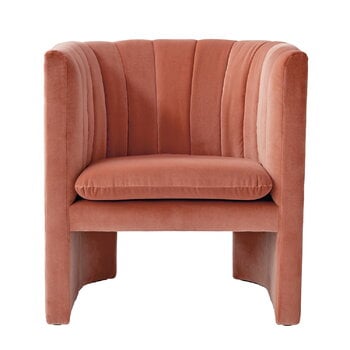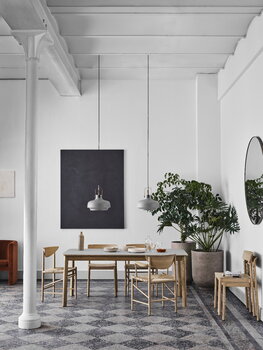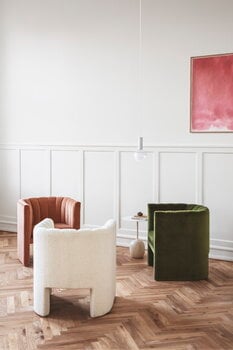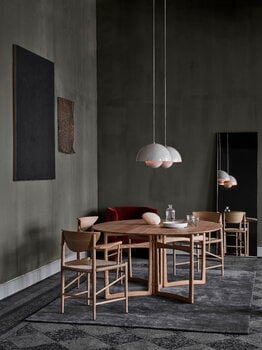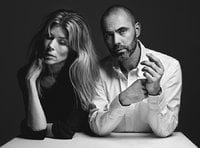&Tradition’s Loafer SC23 lounge chair looks gorgeous next to the living room's coffee table as well as in a peaceful reading nook. A curved, wooden frame makes the chair robust to sit on, and the fully upholstered surface gives it a soft, luxurious character.
Design studio Space Copenhagen designed the Loafer collection for the lobby of Copenhagen’s legendary SAS Royal Hotel, designed by Arne Jacobsen. Space Copenhagen's aim was to design a piece of furniture that would create a sense of intimacy in the large, open space. The elegant collection complements the interior of the hotel in a stunning way, and its sleek, functional design is also well suited for private use.
